The Cognitive foundation of Mathematics conference
THE COGNITIVE FOUNDATION OF MATHEMATICS
(Epistemology and cognition as foundational issues in Mathematics)
ROME - VILLA MIRAFIORI 9-10 September, 2002
Faculty of Philosophy
-
Description
Mathematics is undeniably a product of the human mind and of the human brain. However, since Frege, the grounding of mathematics in our cognitive experiences has been largely disregarded or reduced to irrelevant psychologism'. As a result, the foundation of mathematics has been isolated in a vacuum' (a remark by H. Weyl), far away from any concrete cognitive process as well from the analysis of other forms of knowledge. This attitude encouraged the growth of remarkable and autonomous logico-mathematical foundational approaches which, by their formal aspects, originated and guided the birth and growth of fantastic logico-formal machines, our digital computers. But today, besides the depth and successes of the corresponding foundational theories, it is time to recover, on scientific bases, the informal remarks by Poincare, Enriques and many other mathematicians, who tried to ground mathematics also in our cognitive processes, that genealogy of concepts' cared of by Riemann as well, and pursued on the philosophical side by Husserl in his Philosophy of Arithmetic' and in The Origin of Geometry'. At the time, these thinkers could only use introspection', while now we can gather linguists, neuro-psychologists, physiologists, epistemologists and join our efforts in the attempt to understand the rooting of mathematics in our being in the natural world', as our best (or most special) tool to organize' it and make it intelligible'.
-
Program
-
Day 1: Monday, 9th, September
-
9:30-10:30: G Longo (Informatique, CNRS - ENS, Paris), Naturalizing Mathematics: the cognitive roots of mathematics' constructed effectiveness
10.30-11.30: A. Berthoz (Physique et Physiol. de l'Action - College de France - Paris), The cognitive foundations of geometry: maps or movement?
11.30-11.45: Coffee break
11.45-12.45: J. Petitot (EHESS et CREA - CNRS-Ecole Polytechnique - Paris), Neurogeometry: how our intuition of space is rooted in the
neural architecture
***
14.30-15.30: L. Cohen (Hopital de la Salpetriere, Paris & INSERM U562), How brain lesions can ruin the cerebral foundations of mathematics
16.30-17.30: B. Butterworth (Institute of Cognitive Neuroscience and Department of Psychology, Alexandra House, London), Neural representations of cardinality, ordinality and quantity
16.30-16.45: Coffee break
16:45-17.45: K. Devlin (CLSI, Stanford University), The evolutionary acquisition of mathematical ability
17.45 - Panel Discussion (Mathematics and brain): Longo (Moderator), Berthoz, Butterworth, Cohen, Devlin, Petitot.
-
Day 2: Tuesday, 10th, September
9.30-10.30: G. Lakoff (Dept. of Linguistics, University of California Berkeley), The cognitive science of mathematics
10.30-11.30 : B. Victorri (Linguistique, CNRS - ENS, Paris), Human languages and geometry: The meaning of spatial prepositions
11.30-11.45: Coffee break
11.45-12.45: E. Grosholz (Dept. of Philosophy, Penn State University), The Role of Diagrams as Paper Tools' in Mathematical, Chemical, andPhilosophical Analysis
12.45-14.30: Lunch
14.30-15.30: M. Bitbol (CREA, CNRS-Ecole Polytechnique, Paris), Quantum mechanics and cognition
15.30-16.30: F. Patras (Laboratoire J.-A. Dieudonne, CNRS - Universite de Nice - Sophia Antipolis), Category theory as a support for Husserl's phenomenology
16.30-16.45: Coffee break
16.45-17.45: M. Giaquinto (Dept. Philosophy, University College London), Kinds of Thinking in Mathematics
17.45: Panel Discussion (Mathematics, languages and concepts): Cellucci (Moderator), Bitbol, Giaquinto, Grosholz, Lakoff, Patras,
Victorri.
-
Scientific Committee
C. Cellucci
G. Longo
-
Scientific Secretary
E. Ippoliti
-
Support:
- University of Rome La Sapienza
- Atelier Geometrie et Cognition (Action Cognitique du Ministere de la Recherche - France)
- La Sapienza Department of Philosophical and Epistemological Studies


